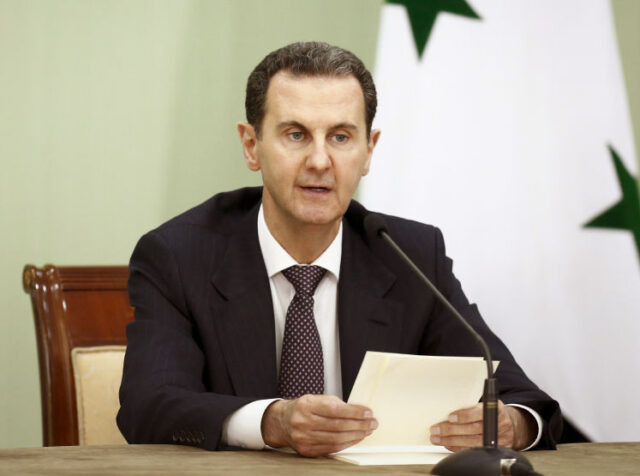AFP — France has issued an international arrest warrant for Syrian President Bashar al-Assad, accused of complicity in crimes against humanity over chemical attacks in 2013, a judicial source and plaintiffs in the case said Wednesday.
The judicial source told AFP Assad was also suspected of complicity in war crimes for the attacks, blamed by the opposition on the regime, that killed more than 1,400 people near Damascus in August 2013.
International warrants were also issued for the arrests of Assad’s brother Maher, the de-facto chief of a Syrian elite military unit, and two armed forces generals.
The Paris court’s unit concerned with crimes against humanity has been investigating the chemical attacks since 2021.
France claims worldwide jurisdiction for alleged war crimes and crimes against humanity.
The probe followed a legal complaint filed by the Syrian Centre for Media and Freedom of Expression (SCM) NGO, lawyers’ association Open Society Justice Initiative (OSJI) and the Syrian Archive, a body documenting human rights violations in Syria.
– ‘Huge development’ –
“It’s a huge development,” SCM president Mazen Darwish said of the warrant for Assad’s arrest.
“An independent jurisdiction is recognising that the chemical attack couldn’t have happened without the knowledge of the Syrian president, that he has responsibility and should be held accountable,” he told AFP.
The case against Assad and the others was backed by first-hand witness accounts and deep analysis of the Syrian military chain of command, Darwish said.
Activists in 2013 posted amateur videos on YouTube said to show the effects of the attack, including footage of dozens of corpses, many of them children, stretched out on the ground.
Other images showed unconscious children, people foaming at the mouth and doctors apparently giving them oxygen to help them breathe.
The scenes provoked revulsion and condemnation around the globe.
A United Nations report later said there was clear evidence of sarin gas use.
Syria agreed in 2013 to join the Organisation for the Prohibition of Chemical Weapons (OPCW) global watchdog and give up all chemical weapons.
The OPCW has since blamed Damascus for a series of chemical attacks during the civil war.
The Syrian government has denied the allegations, which have also sparked legal complaints in Germany and other European countries.
Syria’s civil war broke out in 2011 after Assad’s repression of peaceful demonstrations escalated into a deadly conflict that pulled in foreign powers and global jihadists.
The war has killed more than half a million people and displaced half of the country’s pre-war population.

COMMENTS
Please let us know if you're having issues with commenting.